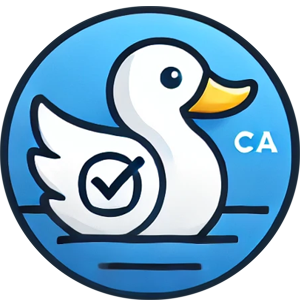Ethical Use of Emerging Technologies
by ChatGPT-4o
From AI and gene editing to smart cities and self-driving cars, emerging technologies are rewriting the rulebook—often faster than society can keep up.
With every breakthrough comes big questions:
Just because we can do something, should we?
Who benefits, who’s at risk, and who decides what’s “ethical” when the code is still being written?
The ethical use of emerging technologies is about making innovation serve the public good—not just the bottom line or whoever can code the fastest.
1. The Landscape: Where Are We Now?
- Blurring Boundaries: Technologies like artificial intelligence, facial recognition, and CRISPR gene editing are leaping from the lab to the street (and sometimes, your pocket).
- Race to Deploy: Companies and governments are often more focused on “first to market” than “first, do no harm.”
- Hype vs. Harm: Promises of efficiency, convenience, or profits can overshadow hard questions about privacy, fairness, and unintended consequences.
- Regulation Gaps: Laws and oversight struggle to keep pace with rapid change, leaving many decisions up to private companies or “move fast and break things” entrepreneurs.
2. Who’s Most at Risk?
- Marginalized communities: New tech can reinforce old biases, exclude voices, or target vulnerable groups in new ways.
- Workers: Automation and AI may transform jobs—or eliminate them altogether—without giving people a say in the process.
- Consumers: Early adopters may face risks that only become clear after something goes wrong.
- Society as a whole: Unchecked innovation can widen inequality, erode trust, or disrupt basic rights.
3. Challenges and Stress Points
- Lack of Transparency: Black-box algorithms, proprietary data, and secret deals make it tough to know what’s happening—or why.
- Ethical “Gray Areas”: Technologies move faster than our ability to set rules, leaving society to play catch-up after the fact.
- “Tech Solutionism”: Believing every social problem has a technological fix can distract from deeper systemic issues.
- Global Impacts: Decisions made in one country can ripple worldwide, for better or worse.
4. Solutions and New Ideas
- Ethics by Design: Bake fairness, accountability, and public input into every stage—from brainstorming to beta testing.
- Multi-Stakeholder Dialogue: Involve diverse voices—techies, ethicists, community leaders, and those impacted—before deployment.
- Regulatory Sandboxes: Test new tech in controlled, transparent environments with clear rules and oversight.
- Clear Accountability: Define who’s responsible when something goes wrong (hint: it shouldn’t just be the intern).
- Continuous Review: Don’t “set and forget”—adapt rules as technologies and their impacts evolve.
5. Community and Individual Action
- Stay Informed: Learn how new technologies are being used (or misused) in your community.
- Ask Hard Questions: Demand transparency, public consultation, and real-world impact assessments before rolling out new tools.
- Support Responsible Innovation: Reward companies and policymakers that put ethics at the heart of progress.
- Advocate for Oversight: Push for watchdogs, ethics boards, or citizen panels to guide tech deployment.
- Educate Others: Share knowledge and resources—don’t let ethics become an afterthought.
Where Do We Go From Here? (A Call to Action)
- Tech creators: How do you prioritize ethics when designing new tools or systems?
- Policymakers: What frameworks or rules are needed to balance innovation and responsibility?
- Everyone: What kind of future do we want—and how do we make sure new tech serves people, not just profits?
Ethics isn’t a speed bump; it’s the steering wheel for a future worth living in.
Let’s make sure the next wave of innovation leaves everyone better off.
“Progress without principles is just running faster in the wrong direction.”
Join the Conversation Below!
Share your hopes, worries, or ideas for using new technologies ethically.
Every story helps shape a more thoughtful—and more human—digital future.
